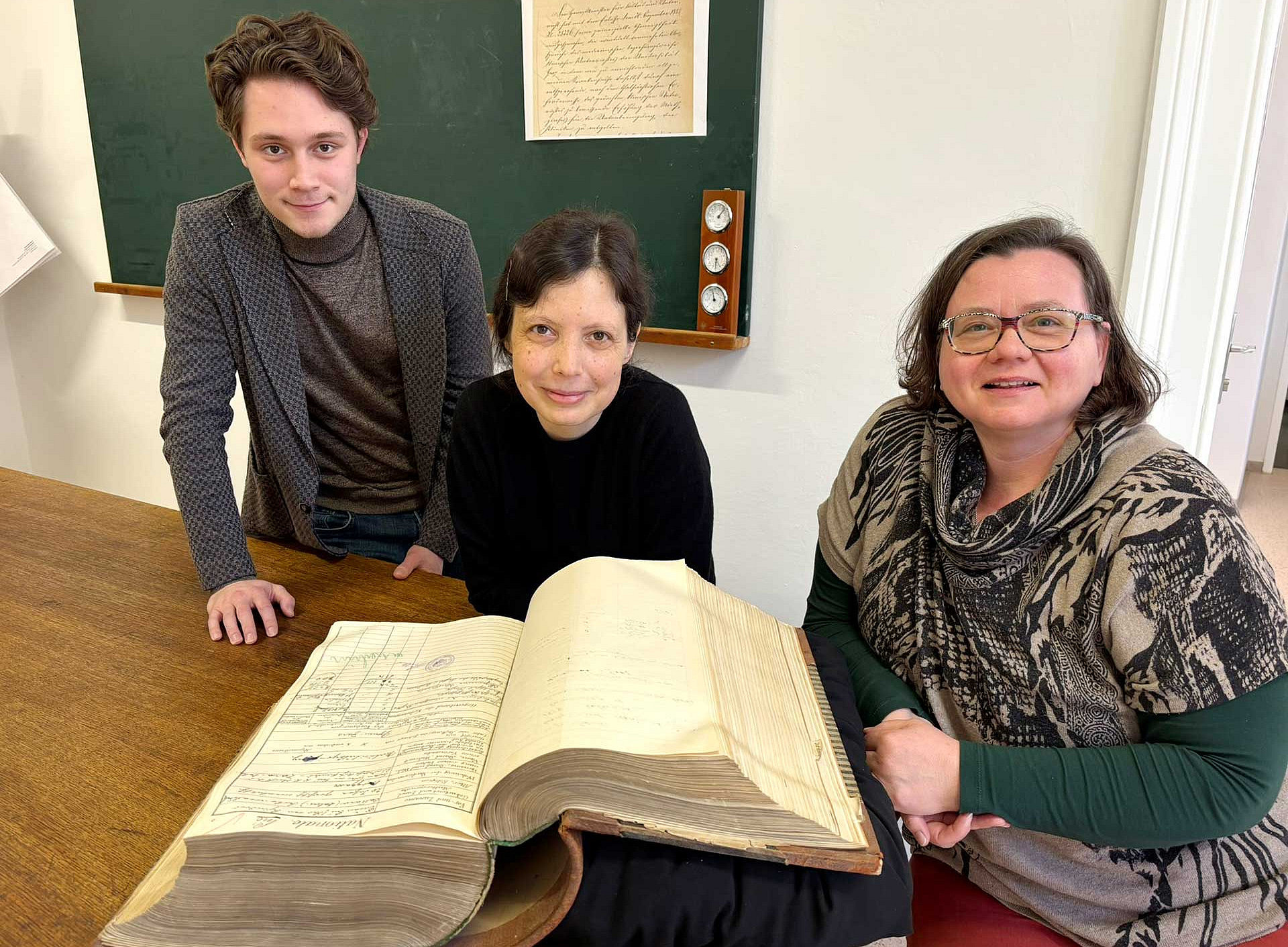"It's easy to see where the students were born or where they lived in Graz," explains Mayr, who is already able to work as a researcher as part of his bachelor's degree in history thanks to the course. Source work is an important aspect for Evelyn Knappitsch: "Students should familiarise themselves with academic work at an early stage and without any fear of thresholds." Over the past two semesters, a total of 100 participants in the proseminar on modern times have worked on around 1,000 data sets from the 1900 winter semester and brought new findings to light.
"It shows that despite being taught in German, multilingualism was something quite normal back then," says Knapptisch. "In addition to Styria, the catchment area included many other crown lands." For example, almost half of the law students stated that they were not native German speakers. Many students from other disciplines also came from the regions of Trieste, Pula, Dalmatia and what is now Slovenia.
"The project does not do away with the narrative of the 'German' University of Graz around 1900 that dominates today, but it does add an additional aspect," says Knappitsch. "We recognise that the everyday university life of people in the Habsburg Monarchy was often more linguistically diverse."
Lukas Mayr adds another finding: "The information about fathers shows that education was often inherited. In combination with the daily newspapers, in which guest lists of Graz hotels were once printed, further social conclusions can be drawn - for example, when prominent parents came to visit. "It reads like early social media," smiles Mayr.
According to Knappitsch, the aim is to make the forms from the 1900 winter semester fully digitally accessible in collaboration with the university archives and to extend the research to other semesters. There is plenty of data available, confirms Petra Greeff, a researcher at the archive: "From the mid-1880s to the late 1960s, these forms were kept per person and semester, and we have preserved them."
⇒ Map showing the places of origin of students in the 1900 winter semester
